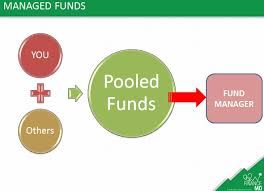Biases and overconfidence can cloud the vision and decision-making abilities of even the most experienced investors.
So we spoke with Svetlana Gherzi, a behavioral finance specialist at UBS Wealth Management, about the most common biases and how investors can avoid their pitfalls.
In finance and economics in general, we kind of assume that individuals should behave according to models that mathematicians created. Obviously, to most of us, that’s not always the case.
To give you a healthcare-related example, think of a rational person who decides that they would like to minimise the likelihood of having future serious medical issues. Rationally, you’d want to go get your checkups pretty regularly. However, evidence suggests and studies have shown that people actually intentionally choose not to go see the doctor and that is because they don’t want to hear the bad news.
They are making their decision based on how the information is going to make them feel versus what their future self is going to be thankful for, right? Because at the end of the day, you want to behave rationally.
So similarly, human nature gets in the way when it comes to making investment decisions. Sometimes even good intentions can be ruined because of our human nature.
For example, one of the more common ones is overconfidence. 74% of fund managers believe they are above average, which obviously with statistics is not true.
In New York, where we are today, statistics have found that 94% of the taxi cab drivers believe they are an above average driver. I was on the way here today and I thought I was going to get killed at some point. My driver thought he was a Formula One driver.
So again, there’s a lot of biases. The one I just gave you an example of, overconfidence, we systematically overestimate our true knowledge and our ability to forecast, which is a big issue. Because obviously, if you know this much and we think we are way above average, it leads to chasing specific stocks, chasing performance, lack of diversification, holding concentrated stock positions, and so on.
So for example, to give you an even more extreme example of overconfidence, think about a bubble. Every bubble is accompanied by a great dose of overconfidence. Herding behavior, overconfidence, excitement.
And what really tends to happen with these biases, you can call them cognitive or heuristic but at the end of the day, it’s emotions or biases that shift our perception of risk. So when we’re excited and overconfident, we underestimate the risk related to things. So if the stock markets are going up, people start herding, people become overconfident when they see good returns and they make more extreme decisions.
If the stock markets are going up, people start herding, people become overconfident when they see good returns and they make more extreme decisions.
Therefore, they become risk-seeking when sometimes they actually need to back down and start selling their great investments and rebalancing their portfolios.
On the other hand, when markets aren’t doing that well, things like loss-aversion kick in and, as you know, losses are on average twice as painful as equivalent size gains. For some individuals even more so. Fear, anxiety, those emotions kick in and individuals actually try to get out of the market when, in reality, when things become cheap they should be getting into the market.
So this is why you see the behavior where investors want to get in the market when things are expensive and they want to get out of the markets when things are cheap. That’s actually not how we behave every day. People love things on sale. Who doesn’t like a good deal? However, when it comes to investments, the experience that got us there makes a big difference.
And I’ll give you another example. I think a lot of investors are still impacted by the 2007-08 financial crisis. Think about what has happened if we talk about experience, not just necessarily bias.
They went through a market drop. Obviously, a lot of individuals lost large chunks of their portfolio. And now they are finally at a point where they have gained it back. So naturally, it feels good to capture those gains even though any fundamental analysis or any economist can say it’s still a great idea to stay in the market, how they got there matters. And I’ll give you a real-life example.
Consider that you go into a casino. Scenario A: You go into a casino, you lose $US800 and then you win $US1,000. You’re pretty happy, right? Imagine it a little bit differently. Scenario B: You win $US1,000 and then you lose $US800. Even though in both outcomes you’re up $US200, how you got there really matters.
It’s all psychological. In investments, there are a lot of psychological components that really drive investors’ decisions.
Turner: So then, given where we are in the stock market, you said a lot of those loses from ’07-’08 have been made back, it’s that first example of having been in the casino and having lost $US800 and now made $US1,000. Do you see that overconfidence in the market now and do you see the herding behavior you described as well.
Gherzi: I still believe there are a lot of anxious investors. I don’t hear a lot of people jumping to invest. So I don’t see that irrational exuberance behavior.
I still believe there are a lot of anxious investors. I don’t hear a lot of people jumping to invest. So I don’t see that irrational exuberance behavior.
I absolutely don’t. Yes, we’re at high valuations but we don’t see that behavior, so it’s very different dynamics at the moment.
But with that said, I think identifying a behavioral challenge is step one. And we are bad at identifying our own biases. Like if I were to ask you do you if you are an above average driver, we can have an argument about this. But again, it’s hard to say, “yes, I have that bias.”
It’s usually more evident from a third party. That’s why I always say don’t undervalue professional advice. Because sometimes you can see better from a third person perspective.
The second step is not only to recognise the bias but how do you create a solution. How are you going to get rid of it? That’s why I think advisors and investors need to be like doctors. They really need to figure out is it a broken wrist? Or is it a toothache? And what remedy are we going to prescribe?
Is it an overconfidence issue? Is it a loss-aversion issue? Is it a past-experience issue? And what is the strategy that we can design to make sure that somebody follows that prescription? Because a lot of times you see great plans — staying diversified, rebalance regularly, do everything you’re supposed to — but then emotions get high and you don’t stick to the plan. And I’ll give you an example.
I read an article recently, I don’t know if you’ve ever gone skydiving. It’s still on my list, but I’ll share an article that I read.
So obviously, as a rational person, when you sign up for skydiving you make a plan, you acknowledge all the risks, you sign a bunch of forms probably, you get on the plane, and apparently, you are told to jump on three.
However, once you are up in the air and it’s time to actually act on your plan, people tend to grab the doors. Emotions are at a high level. So what instructors actually do is they push you out at the two. To make sure you stick through with the plan.
That’s why I think even when investors have a great diversification strategy or rebalancing strategy, there will be a moment where they will get emotional. And emotions can overrule any rationality.
Now what I am seeing in the market is not irrational exuberance but I’m seeing a lot of uncertainty-aversion. And uncertainty-aversion is another way of thinking about risk. People just don’t like to deal with uncertainty and they tend to freeze unless things are resolved.
What I am seeing in the market is not irrational exuberance but I’m seeing a lot of uncertainty-aversion. And uncertainty-aversion is another way of thinking about risk. People just don’t like to deal with uncertainty and they tend to freeze unless things are resolved.
You might remember Brexit or US presidential elections. Now it’s North Korea or items on the legislative agenda. Are they going to go through? So there’s so much uncertainty that needs to be resolved that actually, it causes a lot of stress. It’s like a threat to our brain from an evolutionary perspective. So people are actually really, really frightened.
There have actually been studies done with hermit crabs. The crabs, as they grow they walk around and they collect new shells and they evolve in their environment but under stress, they stick to their old shell and they actually grow within it.
Similarly with humans, when we are under a lot of stress, we tend to revert back to our old-fashioned behaviors, even if we do have a rational view of things, we tend to revert back to our habitual behavior.
Turner: You mentioned this uncertainty-aversion. Can you describe that? What does that mean? Given where stock markets are because as you said, there is a lot of uncertainty — politics, geopolitics — a lot going on and a lot of difficult things to make sense of in the world, but stock markets are also hitting all-time highs. How do those two things fit together?
Gherzi: Uncertainty-aversion, just to illustrate an example, this was a question designed by Daniel Kahneman, the Nobel prize winner in economics even though he’s a psychologist.
Imagine you have two options. Option A: I can give you, let’s make it fun, $US3,000. Or option B: I can give you an 80% chance of winning $US4,500 and 20% of winning nothing.
Which option would you prefer? Option A, $US3,000 or option B, an 80% chance of winning $US4,500.
Turner: I’ll take the $US3,000.
Gherzi: $US3,000, right? But if we put our economist hat on and calculate the expected value in option B, the payoff is actually higher. It’s $US3,600. So as rational individuals, we should be taking the higher payout. But again, we’re human. We don’t like uncertainty.
So even if there’s a little probability of uncertainty, a 1% or 0.5%, we’re going to try to avoid that option. That’s why a majority of the individuals, I believe in that study it was 78%, they go for the certain option.
Similarly with the stock markets or the markets in general, until there is some certainty, people are not going to do what’s in their interest.
We actually conducted an analysis. I looked up mutual fund cash flows, money going into and out of the market, for example, pre-Brexit or pre-election and what you’ll notice is a very similar pattern for every event.
There’s a time period of X number of months where the cash goes out of the markets. The uncertainty event and then cash starting to be more randomized in terms of in and outflow. So again, people need a resolution regardless of what economist forecasts are telling them.
But I think the better strategy, rather than trying to time the market, is to figure out why you own the investments you own. What is the purpose?
Obviously, there are tons of studies that show there’s a behavior gap. We always try to time the market. It doesn’t work. It’s hard. It does work for a small percentage of people but not for the majority of investors, right? Somebody has to be the — not the winner, unfortunately.
So rather than looking at your diversified portfolio and adding more resources to the great performing assets and trying to liquidate your bad positions, really think about what role they play within the portfolio. What is the objective? What is their role? Are you trying to hit a goal 10 years down the line? 20 years down the line? Then you shouldn’t even pay attention to what’s happening right now.
Think about the fact that we live in a digital world. From a rational economist perspective, more information should enable us to make better decisions but when it comes to investments, usually it backfires because again, more emotions, more loss-aversion, more overconfidence.
From a rational economist perspective, more information should enable us to make better decisions but when it comes to investments, usually it backfires because again, more emotions, more loss-aversion, more overconfidence.
And the chances of seeing a loss if you monitor, for example, the S&P 500 on a daily basis, it’s like flipping a coin. We don’t know what it’s going to do tomorrow. But if you extend your time horizon, the probability of seeing the stock market go up, if you look at S&P 500 once a year, it increases roughly 84%. So a huge increase. Which means you’ll have a smoother investment journey.
That’s why I think you really need to figure out why are you invested? What is the purpose of each asset class? And try to work with either an advisor or a professional or another party who you can bounce your ideas off.
Turner: So with that said, what do you make of all the apps that are available now that have these game-ification elements where you can login and see your stock portfolio and it’s up in the last half-hour or down and there’s all of these charts, red lines, green lines, showing you whether it’s good or bad. Should people just log out of those and not check them as often as they do? How do you cope with that?
Gherzi: That’s a great question. Those apps and the game-ification aspect, it’s great for things like encouraging people to save more because it engages, there are different behavioral strategies you can use to actually help the majority of the population who aren’t saving for retirement, let’s say.
These sort of techniques really allow you to start thinking about your future. Research shows that if you see yourself older in the future with a smiling face, people are more likely to start contributing more to their retirement plan. And then there’s actually an app that exists where you can make yourself old. So there’s a lot of interesting techniques that actually work for that sort of thing.
For professional traders as well, we always tend to paint emotions in a negative light which is not always true. Intuition is actually great because, if used correctly, it actually takes the cognitive load off of us and allows us to focus our limited resources on other things.
So again, for professional individuals, yes it’s convenient because their intuition is so conditioned they can actually use it to their advantage. It’s like a basketball player. They’re not going to sit there and calculate the trajectory of the ball flying into the hoop, right? They do it intuitively because they are so conditioned.
For an average investor, that’s not the solution. For an average investor, I see it as a distraction. So I think being exposed more to relevant research rather than headlines and things that really mess with your emotions and risk-perception.
I read somewhere recently about a study where things like hurricanes and earthquakes, because they are considered bad and risky, they actually impact investors’ behavior as well and investors become more risk averse because there’s so much in the media about risks even in other domains. Let alone the stuff we have going on in the geopolitics and our domestic politics and so on.
Turner: OK so one last question. What’s your advice to someone, the situation you’ve just described, ideally people invest for the long-term and have long-range windows of time and perspective, what’s your advice to someone in that scenario who’s tempted to check their app every day to see what’s going up and what’s going down, to constantly change their portfolio when maybe in the long run that’s not the best thing for them?
Gherzi: I think once individuals figure out why they’re going to be invested, it makes it so much easier for them to stick to their plan.
So that “why?” becomes like a GPS and then the plan and the diversification and the rebalancing strategies become the path of getting to their destination. I think that’s one scenario.
For those who are more market engaged, you need to realise there will be more fluctuation and emotional response. More engaged investors tend to trade more which a lot of research shows backfires so it’s suboptimal for portfolio performance.
So really, not waking up in the middle of the night and because you have a convenient app and you had a bad dream, you start trading. You actually go to sleep and deliberately think about it. What is it going to mean for you long-term? And then make a decision.
So rather than relying on pure reaction, really get your deliberate thinking system in place.
view original article here: https://www.businessinsider.com.au/ubs-behavioral-finance-specialist-how-emotions-get-best-of-investors-2017-9

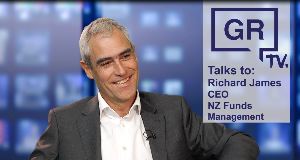
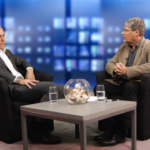

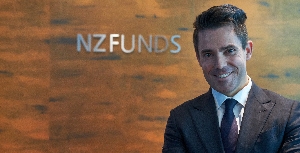

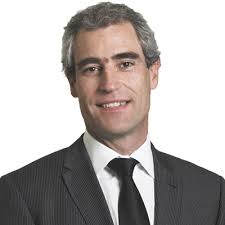
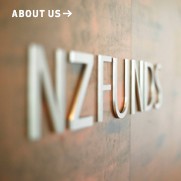
 Richard James (Chief Operating Director) of NZ Funds
Richard James (Chief Operating Director) of NZ Funds



